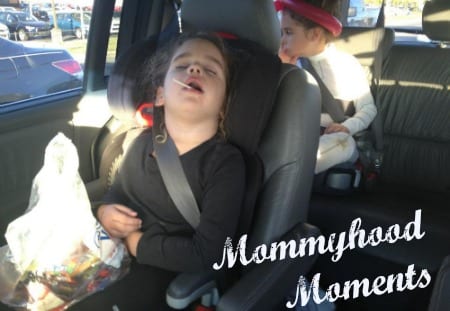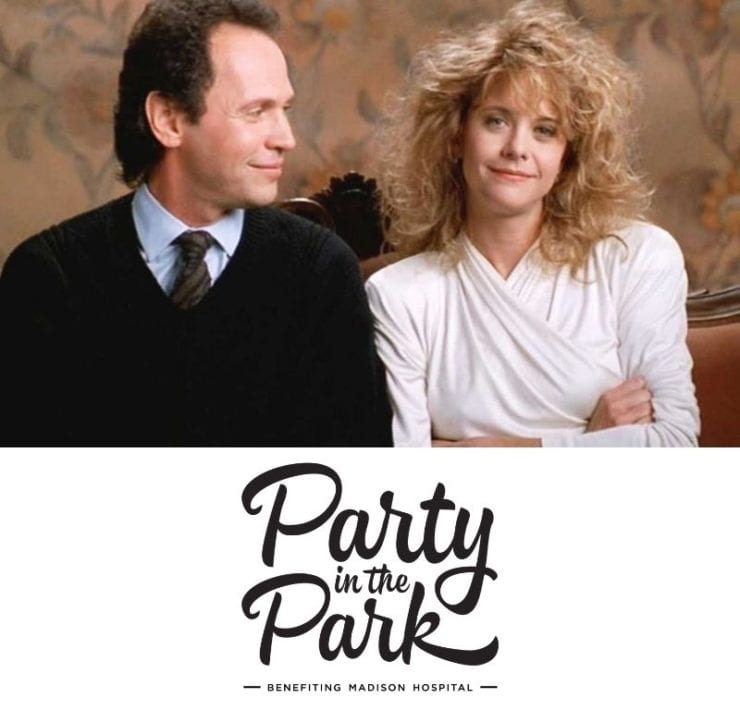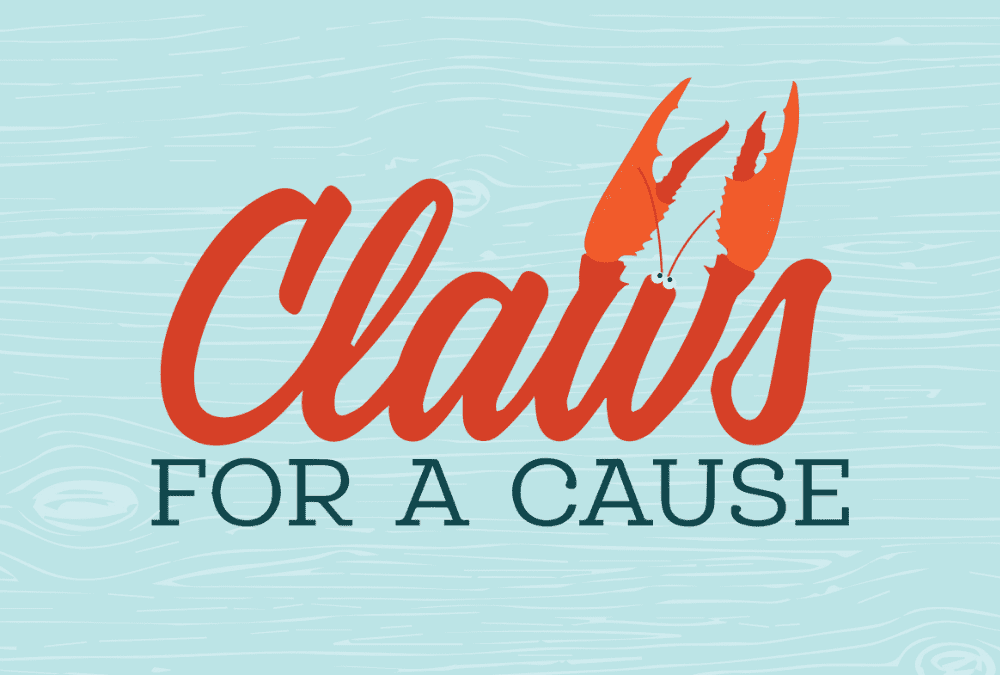Bonking and Swagging with Hot Shots: Type 1 Diabetes Support for Tennessee Valley Children and Their Parents
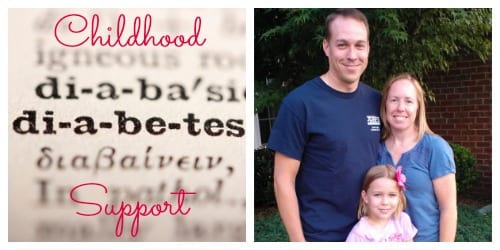
Mallory is an energetic, happy little girl with a luminous smile. She likes gymnastics and soccer.
She is also, at 7, already a familiar traveler in a world of basal rates, infusion sites, and riding the “glucoaster.” She has never known a world without rigorous daily medical care. Mallory has Type 1 diabetes.
Ross and Sarah Armstrong, Mallory’s parents, are quite active in the local Type 1 community. I sat down with them last week to discuss Hot Shots, an organization for Type 1 patients and their families that is sponsored by Huntsville Hospital Foundation, Southeastern Diabetes Education Services, Alabama American Diabetes Association Advocates, and JDRF (formerly known as the Juvenile Diabetes Research Foundation).
Sarah is a mentor with JDRF, a worldwide charitable organization that, through its local chapters, partners with local organizations like Hot Shots. The mentoring program ensures that when your child is diagnosed with Type 1 diabetes, one of the first people you hear from will be Sarah (or someone like her).
“Through that initial mentoring, they can learn about and get involved in Hot Shots events,” Sarah says. For a child Mallory’s age, such events include activities like ice skating, swimming, horseback riding, and archery.
Hot Shots events also provide something less concrete, yet far more valuable: a sense of community. Parents are with other parents who get it. They can swap techniques. They can share knowledge of particularly accommodating local businesses. They can simply be comforted in an environment of genuine empathy.
The children get that, too. “Mallory loves her Type 1 friends,” Sarah says. “They have dolls with insulin pumps!”
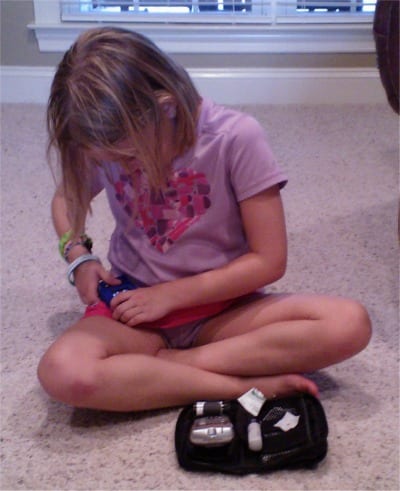
Mallory was two years old when she was diagnosed, so she will have no substantive memory of a time before Type 1 diabetes was part of her life. In some ways it can be harder for children who are diagnosed when they’re older. A newly-diagnosed teen can be resentful, or furious, or despondent, or all of the above. Hot Shots helps there with teen events.
These events “get the teens away from the parents,” Ross says. “They can talk about whatever they want to talk about without their parents being around. It’s the same thing that all teens do. It’s just that diabetes is another thing on that list of things they deal with, and they’re surrounded by other teens who understand.”
Sarah and Ross shared with me that the start of school can be a trying time for a Type 1 child, because it means establishing new routines, and therefore new basal rates (the rates at which an insulin pump dispenses insulin). “When she starts school again, we’ll have a couple of weeks where everything’s out of whack,” Ross says. When is P.E.? When is lunch? She should be on the low side of nominal right before she eats. Are we accomplishing that?
[sws_pullquote_left]Hot Shots events also provide something less concrete, yet far more valuable: a sense of community. Parents are with other parents who get it. [/sws_pullquote_left]Moreover, for new schools or new families in the area, there is the uncertainty of dealing with school personnel. Has the school nurse dealt with Type 1 children before? Do the teachers understand that a snack might have to be right now, no matter what the class schedule is?
Hot Shots is just the kind of community to ease these anxieties. With mentors and other parents, Type 1 parents can leverage common knowledge and emerge at much more peace concerning what awaits their children.
Knowing the Lingo
Hot Shots puts families together to enjoy Type 1 culture, as well. What is Type 1 culture? Well, for one thing, it’s some amusing language. A child whose blood sugar is dropping off quickly is said to be “bonking.” If you are estimating carbohydrate content of a food (at a restaurant, for example), you are “swagging.” (SWAG is an acronym. S is for scientific, W is for wild, and G is for guess. I’ll leave it at that.)
“Do you feel high?” is a legitimate question to a Type 1 child. “Are you buzzing?” is another. That means “is your insulin pump buzzing?” A child whose glucose levels are undesirably peaking and bottoming is “riding the glucoaster.”
The camaraderie fostered in a community like Hot Shots is critical for long-term success. Type 1 treatments have advanced dramatically, particularly over the past couple of decades. Even so, there is not yet a cure, and as it’s invariably fatal without treatment, it must be tended to daily.
That’s heavy, and you never get to put it down.
Hot Shots can help Type 1 children and their parents remain upbeat about carrying it. I very much saw this spirit embodied in Sarah and Ross. They must address it, so they might as well be enthusiastic about it. Sarah senses an opportunity to educate, and she lights up.
And they both stressed to me repeatedly: don’t go through it alone.
Get More Info
If you have a child with Type 1 diabetes, Hot Shots can help. If you have questions or are interested in participating in Hot Shots, please contact Cindy Spillers at (828)545-5630. If you would like to be contacted by a mentor, please contact Sarah Armstrong at [email protected].
Huntsville Hot Shots Facebook Page
You can always leave a question or comment below and we’ll put you in touch with the right people!
Lifelong Alabamian Bo Williams is a Christian, husband, father, writer, and human trafficking activist. He has strong opinions on many things, including good food, IndyCar racing, and the importance of high-quality socks. You can keep up with him day to day at BoWilliams.com.






